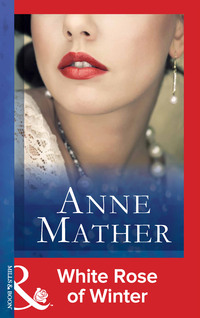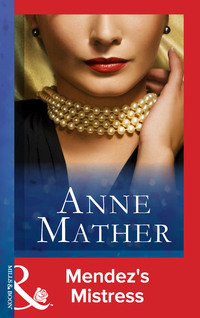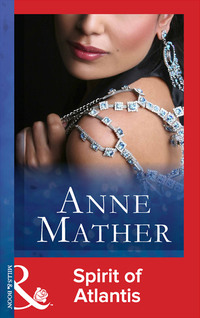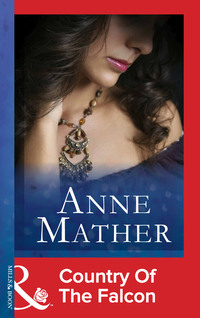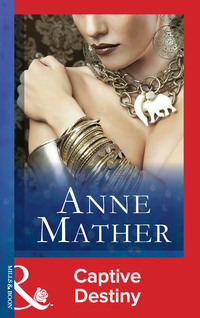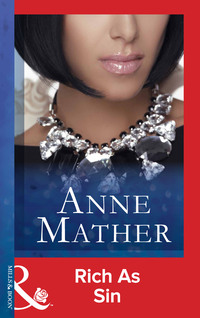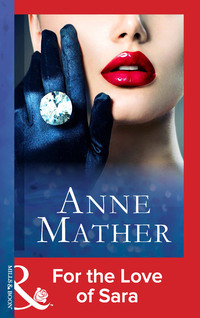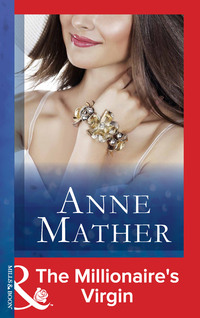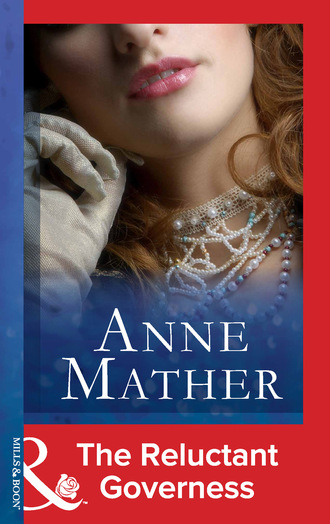
Полная версия
The Reluctant Governess
Victoria considered his question. ‘Well, I haven’t actually done any teaching before,’ she confessed at last. ‘However,’ she added, hastily, ‘I do have the qualifications. I simply haven’t used them before.’
There was another long silence and when she glanced across at him, half afraid of his reactions to this statement, she found he was shaking his head rather resignedly.
‘Is—is something wrong, Herr Baron?’ she asked, only remembering to add his title as an afterthought.
The Baron looked at her. ‘Nothing,’ he said, with emphasis. ‘It simply seems that Sophie is doomed to be educationally sub-normal!’
Victoria raised her eyebrows. ‘Whatever do you mean? She forgot his title in her indignation.
The Baron lifted his broad shoulders indolently. ‘You are the third governess she has had,’ he explained patiently. ‘The first was a woman of perhaps fifty years. Experienced with children but unable to stand the isolation, or so she said. She left without attaining her first month’s salary.’ He sighed. ‘The second was a girl like yourself. With three years of teaching two older children behind her she should have found Sophie an easy task. But no! Her nerves would not stand it, that was her excuse. She left also.’ He glanced her way sardonically. ‘And now there is you, fräulein. Your first teaching position. You admit that until now you have had no cause to work. From this one gathers you have been living a socially active existence. How do you imagine you will stand up to the rigours of life at Reichstein when two experienced governesses have failed?’
Victoria bit her lip. ‘From what you say, I gather the others left because of the isolation. I’m not afraid of isolation, Herr Baron.’
‘No?’ He looked sceptical. ‘Not even when this is your first teaching post? Do you not perhaps think you will require some kind of light relief after working all day with Sophie? We do not even have television at Reichstein, fräulein.’
Victoria gave him an irritated stare. ‘One would almost imagine you did not want a governess for Sophie,’ she commented, with daring.
The Baron frowned. ‘You do not know me very well yet, fräulein. One should never jump to conclusions.’
Victoria bent her head and said nothing, but the ready indignation was very near the surface when dealing with this man.
Presently they reached the summit of a steep incline and now Victoria could see a valley below them. Moonlight illuminated it eerily while on the far side of the valley, above the surging waters of an icy stream, stood a fairy-tale castle, its turrets silhouetted against the backcloth of dark pines. Victoria gasped, and the Baron’s attention was drawn to her once more.
‘Picturesque, is it not?’ he queried, half mockingly. ‘An enchanter’s castle!’ He put the car into a lower gear and began the steep slope down into the valley. ‘Unfortunately, no one should judge things, any more than people, by their outward appearance.’
Victoria frowned. ‘You are cynical, Herr Baron. Beauty is in the eye of the beholder.’
‘But beauty, real beauty, is not a one-dimensional quality,’ he observed bleakly. ‘Beauty has depth and feeling. That is not in the eye of your beholder. That is inherent in the thing one beholds.’
Victoria tried to understand what he was saying. It was strange to realise how complex their conversation had suddenly become. Somehow there was more to his words than mere cynicism and curiosity gripped her for a moment. But as they reached the valley floor and began to climb the frozen track to the schloss a feeling of awe filled her being. It was incredible to accept that she was here, in Austria, miles from London and everything she had known all her life, and almost ready to begin life again as someone’s employee.
They entered the schloss through a turreted gateway into an inner courtyard lit by lanterns. Obviously in days gone by, this was where the horses were stabled and where the servants had their quarters, but now it looked deserted, the windows blank and shuttered and unlit. Victoria glanced at her companion, but he did not look her way before thrusting open his door and climbing out. He stretched for a moment, and then turned to reach for her case.
Victoria hesitated only a moment before getting out also and looking about her. She was aware that the Baron was looking at her now, gauging her reactions, and before she could speak, he said harshly:
‘Is something wrong, fräulein? Did my cousin Theresa omit to inform you that her cousin the Baron von Reichstein is almost as impoverished as his poorest tenant?’
At once Victoria was defensive. ‘I can’t believe that a man who can afford a governess for his daughter is a pauper, Herr Baron,’ she countered, quickly.
He smiled. ‘You think not? Very well, fräulein, we shall see. Come! You are cold, I can see it. At least I can promise you a good fire and a hot supper.’
Victoria was impatient of his self-mockery and walked ahead of him when he indicated that she should cross the courtyard to the entrance. As she did so, she looked up at the tall mass of the building. It was not a large castle compared to those she had seen in England, but it was considerably larger than an average-sized dwelling. There were one or two lights in the lower windows, but the greater part of the building was in darkness and chillingly desolate beneath the eaves of snow.
They reached an iron-studded door and the Baron leant past her to thrust it open. For a moment his body was close to hers and she smelt the warm heat of his skin and a faint odour of tobacco, and an awful sense of breathlessness enveloped her. Then he moved back again, and the feeling left her.
They entered into a wide hall, lit by electric candelabra. It was a nice touch, although Victoria was amazed that there should be electricity here, so far from the city. The ceiling was high and shadowy, but an enormous log fire burned in a huge grate and two wolfhounds rose at their entrance to amble across to greet their master. They sniffed Victoria’s clothes suspiciously, and she remained perfectly still, terrified that they might attack her, until the Baron saw her frozen features and adjured the beasts to get back to their position in front of the fire.
‘Are you scared of animals?’ he asked roughly.
Victoria gathered her scattered wits. ‘Of course not, at least not in the normal way. They—they are rather large, aren’t they?’
The Baron gave her an exasperated look and then strode across the polished wooden floor shouting: ‘Maria! Gustav! Ich bin hier!’
Victoria hovered by the doors, unwilling to approach the fire even though she would have appreciated the warmth. She looked about her apprehensively as she waited for some sign that they were not the only inhabitants of this fairy-tale castle, noticing the shields on the walls, the swords and hunting spears, a tapestry of animals and men locked together in a grim battle for survival. It was medieval, she thought in amazement. People actually lived among such things. She turned her attention to the furniture. The only concession to comfort was a high-backed settle by the fire. The long wooden table and chairs were stark and practical. There ought to be reeds on the floor, she thought with an attempt at lightness, not these rugs, although as some were animal skins maybe they were appropriate after all.
The Baron was shedding his heavy parka; flinging it over a chair and excusing himself, he strode through a heavy door to the right of the staircase which wound into the upper regions. As Victoria’s eyes wandered up the staircase she saw that there was a gallery at the top of the first flight, and even as she looked a shadow moved there, in the gloom.
An icy shiver ran up her spine, and she took a step towards the door through which the Baron had passed only to be halted by the raised heads of the two wolfhounds and an unmistakable growling in their throats. Sheer panic struck her and she closed her eyes, striving for control. The night, the weather, her unhappy experience at the station, and now this strange and deserted castle were all combining to create within her a kind of nightmarish horror, and for several moments she felt petrified.
But the moment passed, as all moments eventually do; the dogs were not growling any longer, the fire burned brightly, and there were no shadows when she looked again at the gallery.
With determination, she began to move towards the fire. If she was to have any kind of a life here at all she must get used to these great hulking creatures. She was not naturally afraid of dogs although she had never had anything to do with them before, and who was it who had said that the larger the animal the gentler it was? She swallowed hard. Obviously they must have been talking of domestic animals, for who could consider a rhinoceros a gentle beast? And after all, these were domestic animals, not ravening wolves from the upper slopes of the Rockies. They looked up again at her approach, but at least they did not growl now and she wondered if that was a good sign.
The heat from that cheerful blaze was penetrating and in no time she was loosening her coat and jacket and feeling her fingers tingle with warmth. She was shrugging out of her sheepskin coat when there was a sound behind her, and turning she confronted an elderly woman dressed all in black, her skirts almost reaching her ankles. Her grey hair was secured in a bun, but there were roses in her cheeks and she looked friendly enough.
‘Guten Abend, fräulein,’ she said, with a smile. ‘Come! You would like to see your room, yes?’
Victoria was so relieved that the woman spoke English that she nodded enthusiastically. ‘My—my luggage—--’ she began, but the woman shook her head.
‘Gustav will attend to that, fräulein. Come! All is prepared.’
Victoria collected her coat and bag, cast a thoughtful glance at the wolfhounds, and then followed the older woman. To her surprise they did not climb the staircase from the hall, but went instead through the door the Baron had used earlier which Victoria now found led into a wide passageway. At the end of the passage there were lights and the smell of cooking, and she guessed it was the kitchen area. But a little further along the passage was a door which when Maria, as Victoria supposed the woman to be, opened it revealed a winding staircase.
They followed this spiral staircase up two flights to a narrow landing. There were three doors opening on to the landing and Victoria was tempted to ask who else used this section of the castle but she restrained herself in time. Maria flung open one door and indicated that Victoria should enter. She did so, not without foreboding, for she was not yet rid of that unreal feeling she had experienced, and she had an awful premonition that Maria might thrust her inside and lock the door. But despite her ridiculous fears, nothing unforeseen happened and in fact she found the room quite attractive. In the passageway and coming up the stairs she had not felt the cold, she had been too engrossed with her own imagination, but now she was glad of the glowing logs in the hearth at the far side of the bedroom and moved towards them compulsively, holding out her hands.
‘The bathroom is downstairs,’ remarked Maria, with a trace of reluctance, as though she considered it unnecessary to discuss such matters. ‘There’ll be a meal ready for you in fifteen minutes if you come down to the kitchen, fräulein.’
‘Thank you.’ Victoria managed a smile. ‘Tell me, when will I meet the—er—Baroness and—and Sophie?’
‘You haven’t seen Sophie yet?’ queried Maria, with a shrug. ‘Ach, ach! The child is somewhere about. You will see her in good time.’ She turned to go.
Victoria took a step forward. ‘And—and the Baroness …’ she prompted.
Maria frowned. ‘Baroness von Reichstein isn’t here,’ she muttered, with even more reluctance.
‘Not here?’ Victoria frowned. ‘Then—who is here?’
Maria’s features softened. ‘You are here, fräulein, and I am here, and Gustav is here, and the Herr Baron is here.’
Victoria was aghast. Her godmother would be horrified to discover that apart from Maria there was to be no other woman in the house. Heavens, thought Victoria wryly, she was aghast herself. No wonder the other governesses had found the place isolated. Who would there be to talk to? The Baron? Maria? Or Gustav? Or the child, Sophie? She swallowed hard, and as she did so she realised that since leaving the train at Reichstein she had not once thought of Meredith Hammond!
‘Is that all, fräulein?’ Maria was waiting to go.
‘Oh—oh yes, thank you.’ Victoria nodded, unable to assimilate these new facts immediately. ‘I—I’ll come down when I’m ready.’
‘Jawohl, fräulein!’ Maria smiled and withdrew, and as the door closed Victoria sank down rather weakly on to the bed. As downstairs, the lights were electric, but as she sat there they flickered rather unsteadily for a moment and she shivered again. The journey, her arrival, her surroundings, and most of all the lack of people was unnerving to contemplate, and she had the most ridiculous desire to bury her face on her pillow and cry her eyes out. But that would never do. She was not a defeatist, was she? Surely she was allowing everything to get out of hand. At least the bed felt superbly comfortable and after a night’s sleep surely everything would look brighter …
CHAPTER TWO
VICTORIA rolled over restlessly, gathering the bedclothes closer about her as her movements caused a slight chill to invade the warmth beneath. She was dreaming and the dream was frightening in its clarity. She was running down a steep, snow-covered slope, pursued by hounds whose bared teeth and slavering jowls were inches behind her. They made awful sounds of heavy breathing, panting in her ears until she ran so fast that she felt her lungs would burst. And then she lost her footing and tumbled headlong down the slope, slipping and sliding, and grappling for something to save herself from certain death. Panic penetrated her being, biting particles of snow blinded her, and she tossed about frenziedly, seeking escape from the disaster ahead of her, and then an explosion somewhere outside her realm of fantasy aroused her to a real awareness of her surroundings.
With a gasp, she sat up abruptly in the bed, pressing a hand to her throat to still her racing pulse, and remained absolutely still for a moment, recovering from the shock of her awakening. As full consciousness invaded her mind, she realised that the room was no longer dark as it had been the night before. Light was penetrating the heavy velvet curtains, the brilliant sun-on-snow light that was eloquent of the mountains.
A shiver engulfed her and swiftly she reached for the quilted housecoat she had laid on the end of the bed the night before. Thrusting her arms into it, she saw that her fire was dead, the ashes not even glowing in the hearth, and the room was as chill as a refrigerator. With hasty movements, she fastened the housecoat and slid out of bed, brushing her hair out of her eyes with an unsteady hand. She was still very much aware of the nightmare world of the dream and the remembrance of the explosion which had woken her seemed altogether more substantial than all the rest.
Shivering once more, she pushed aside the velvet curtains and looked out. Last night the landscape had been a white wilderness, but this morning the brilliance of the panorama hurt her eyes. Her window overlooked the rear of the castle, and towering above were the high reaches of the mountains. Closer at hand the pines were loaded with snow beyond a walled garden in which some attempt at cultivation had obviously been achieved. Away to the right the surging waters of the stream could be glimpsed, and she wondered with incredulity how it remained unfrozen in such low temperatures. The surroundings of the valley might account for some shelter, but even so it was very cold.
As normality asserted itself, Victoria turned and lifted her watch from the table by the bed. It was only a little after eight, but she decided she would be well advised to put on her clothes and go and find some heating. She was pulling on thick trousers when a sound at her bedroom door brought her swinging round to face it, grabbing her sweater to hide her chest. The door creaked, halted, creaked again, and finally gave inwards to allow a small face to appear round it.
Victoria heaved a shaky sigh of relief, and swiftly donned her sweater as the girl, for this must be Sophie, came reluctantly into the room. She had the feeling that Sophie had expected her to still be asleep and had not expected to be seen.
‘Guten Morgen, Sophie,’ she said, with a smile, congratulating herself on remembering the simple words, but the girl merely regarded her silently, neither answering her nor attempting to offer any words herself.
As this was Victoria’s first glimpse of her charge she decided to give her a few minutes to get used to her and began to make her bed. The previous evening had been disappointing in the respect that she had seen neither the Baron nor his daughter after her arrival, and when she had ventured down to the kitchen after unpacking her case she had found herself expected to eat at the scrubbed kitchen table with Gustav, Maria’s husband. It had all been part of the strange, unreal quality of the schloss, but this morning she refused to be downhearted. After all, the food though plain had been excellent, and she was little more than a servant when all was said and done. Even so, it was patently obvious that the schloss was no luxury country home and apart from Gustav and Maria there were no other servants. Victoria had plagued her brain with questions long after she had retired and had come to the conclusion that either the Baron was eccentric, or he really was as poor as he had maintained. Of course, if she had had any sense at all she would have suspected something was wrong. Three governesses in as many months, her godmother had said. And that poor creature, the Baroness Theresa; she would hardly live that hand-to-mouth existence if her relatives were rich landowners. Victoria smiled to herself as she spread the coverlet evenly across the width of the bed. Aunt Laurie had had no idea what she was letting her goddaughter in for. She would never have countenanced the idea had she suspected the Baron’s circumstances. And yet, for all that, Victoria found the prospect of her task challenging, and it would do her no harm to have to rough it for a while. She looked across at Sophie’s solemn little face. Well, she thought with insight, it was certainly to be no sinecure.
When the bed was made she straightened and came round to the girl. She was small for her age, with hair several shades darker than her father’s, which she wore in two plaits. She was dressed in a thick woollen dress and cardigan, black tights keeping her thin legs warm. She was not unattractive, but the plain clothes gave her a waif-like appearance.
Victoria rubbed her cold hands together, and said: ‘It’s chilly up here, isn’t it? Shall we go down?’ in a brisk voice. She knew the child understood English. Before her illness she had attended a good boarding academy where English was the second language.
Sophie continued to regard her steadily, making no move towards the door. When Victoria was beginning to feel impatient with her, she said, quite clearly: ‘Do you intend to stay here?’
Victoria was taken aback. ‘Of course,’ she said at once. ‘Why not?’
Sophie shrugged her thin shoulders. ‘Did I say you shouldn’t?’ she asked cheekily.
Victoria compressed her lips. ‘Don’t you want me to stay?’
Sophie’s eyes flickered. ‘You won’t, anyway,’ she replied depressingly. ‘You’ll be like the others. Your nerves won’t stand it!’
Victoria felt a trace of annoyance. ‘My nerves have never troubled me before,’ she asserted calmly. ‘Now, shall we finish this useless conversation, and go down?’
Sophie ran her tongue over her upper lip. ‘If you like.’ But she still made no move to leave. Instead she walked across the room to the dressing table and picked up a flagon of perfume that belonged to Victoria. Without asking permission, she removed the stopper and sniffed it suspiciously. Then, with what Victoria afterwards realised were deliberately fumbling movements, she attempted to press the stopper back in place, allowed the flagon to slide through her fingers and drop to the floor. It did not break, it was plastic, but its contents spilled out over the polished floor.
With an exclamation, Victoria rushed across the room and snatched up the flagon with trembling fingers before all its contents could be lost, and turned to Sophie with angry eyes. It was a favourite perfume of hers and obviously it was impossible to replace here, miles from anywhere.
Sophie pressed her hand to her mouth. ‘Oh, I’m sorry,’ she exclaimed, before Victoria could speak. ‘It—it was an accident!’
Victoria opened her mouth to remonstrate with her, and then suddenly closed it again. Of course, that was what Sophie wanted. She hoped Victoria would lose her temper and get angry. It would prove that she was susceptible and capable of being aroused quite easily. And maybe she wanted to find out just how angry Victoria could become.
So with an immense amount of fortitude, Victoria suppressed her annoyance, replaced the stopper on the flagon, and put it back in its place. Then she turned to the girl. ‘That’s all right,’ she said calmly, more calmly than she felt. ‘Accidents will happen. Do you like perfume, Sophie?’
Sophie screwed up her face. ‘No,’ she said violently. ‘I hate it!’
Victoria inclined her head. ‘Indeed. Well now, shall we go?’
Sophie looked mutinous for a moment, and then she turned and marched towards the door. As she reached it, she turned back. ‘You won’t stay, you know,’ she said derisively. ‘You’ll be too scared!’
Victoria took a step forward. ‘What do you mean, Sophie?’
Sophie shrugged. ‘You’ll find out,’ she retorted, and slammed out of the room.
After she had gone, Victoria found that, she was trembling. Certainly she had never come up against such a strange child before, and while her anger over the perfume remained she began to wonder exactly what motivated Sophie’s deliberate antagonism. With a sigh, she combed her long thick hair into place, secured it with combs, and left the room.
Down the winding staircase she smelt the delicious aroma of baking bread, and when she opened the kitchen door a wave of heat hit her. The kitchen was huge, dominated by the long, scrubbed table and wooden forms round it. Strings of onions hung from the rafters, gleaming pans adorned the shelves, and on the wide fireplace a huge kettle simmered constantly. Maria was busy taking a tray of bread rolls out of the oven beside the fireplace, but she smiled as Victoria entered the room.
‘Guten Morgen, fräulein,’ she said, putting the tray on the scrubbed table. ‘Did you sleep well?’
Victoria relaxed. ‘Danke, yes,’ she nodded. ‘It’s much warmer down here than upstairs.’
Maria folded her arms. ‘It is cold in your room? The fire is gone out?’
‘Yes, I’m afraid so. Do—do I light it?’
Maria shook her head. ‘Gustav will do it later, fräulein.’ She turned away to where a coffee percolator hummed on another stove. ‘You would like some coffee? Or tea?’
‘Coffee would be fine,’ replied Victoria gratefully, seating herself near the roaring fire. ‘Is it always as cold as this?’
Maria spooned sugar into a cup without asking Victoria’s preference, and shrugged, pulling a face. ‘In May the warm days come,’ she said.
‘May!’ Victoria shivered. It was still only March. May seemed a very long way away.
‘You will soon get used to it, fräulein,’ asserted Maria, comfortably, handing the girl a cup of strong black coffee. ‘Wrap up warmly and you will find it is invigorating.’
Victoria sipped her coffee with some satisfaction. At least it was good coffee. She was beginning to feel hungry, too, and the sight of those golden brown rolls was very appetising.


